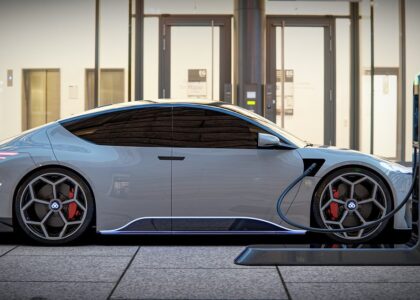As the world moves towards sustainable transportation, electric vehicles (EVs) are becoming increasingly popular. One of the critical factors driving EV adoption is the availability of charging infrastructure. However, for many individuals and businesses considering installing EV chargers, understanding the associated costs can be daunting. In this blog post, we’ll explore EV charging installation costs and what to expect.
- Initial Assessment: Before diving into the specifics of installation costs, it’s essential to start with an initial assessment. At eEVINSTALLQUOTES.com, we offer free site assessments for various settings, including multi-family residences, hospitals, retail spaces, and industrial facilities. These assessments help determine the feasibility of EV charger installation and provide insights into the required infrastructure upgrades.
- Factors Affecting Installation Costs:
- Site Characteristics: The layout and infrastructure of the site play a significant role in determining installation costs. Factors such as available electrical capacity, parking layout, and existing infrastructure can impact the complexity of the installation.
- Charger Type: Different types of EV chargers have varying installation requirements and costs. Level 1 chargers, which use a standard 120-volt outlet, are the most affordable option but provide slow charging. Level 2 chargers require a dedicated 240-volt circuit and offer faster charging speeds. DC fast chargers, while the fastest option, require substantial electrical infrastructure and come with higher installation costs.
- Permitting and Regulations: Obtaining permits and complying with local regulations add to the overall installation costs. Permitting fees, electrical inspections, and adherence to building codes should be factored into the budget.
- Electrical Upgrades: In many cases, installing EV chargers may require upgrades to the electrical system to accommodate the additional load. This could involve panel upgrades, wiring modifications, and installation of dedicated circuits.
- Cost Breakdown:
- Equipment Costs: The cost of EV charging equipment varies depending on the charger type, brand, and features. Level 1 chargers are the most affordable, typically ranging from $200 to $600. Level 2 chargers can cost anywhere from $500 to $2,000, while DC fast chargers can range from $10,000 to $40,000 or more.
- Installation Labor: Labor costs for EV charger installation include site preparation, electrical wiring, mounting the charger, and testing. On average, installation labor can range from $500 to $2,000 per charger, depending on complexity.
- Additional Expenses: Permitting fees, electrical upgrades, trenching for wiring, and any necessary infrastructure modifications contribute to additional expenses.
- ROI and Incentives: While upfront installation costs may seem significant, it’s essential to consider the long-term return on investment (ROI) of EV chargers. In many cases, EV charging installations can attract customers, tenants, or employees, thereby increasing property value and revenue. Additionally, various incentives, such as tax credits, rebates, and grants, are available to offset installation costs and promote EV adoption.
- Conclusion: Installing EV chargers is a proactive step towards embracing sustainable transportation and future-proofing your property. By understanding the factors influencing installation costs and leveraging resources like free site assessments from eEVINSTALLQUOTES.com, businesses and property owners can make informed decisions that benefit both the environment and their bottom line.
Ready to take the next step towards EV charging installation? Contact us today for a free site assessment and personalized quote tailored to your specific needs and requirements. Let’s pave the way for a greener tomorrow, one charge at a time.




